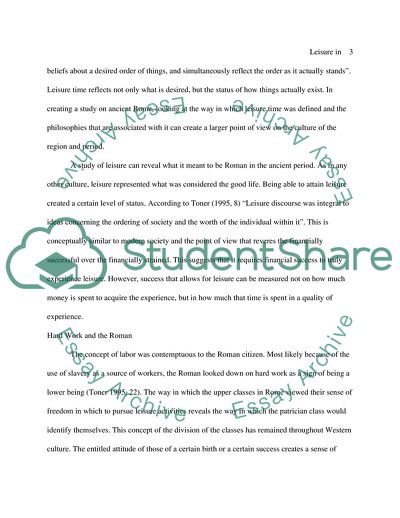Cite this document
(The Culture of Ancient Rome Revealed through Its Leisure Coursework - 1, n.d.)
The Culture of Ancient Rome Revealed through Its Leisure Coursework - 1. Retrieved from https://studentshare.org/culture/1738445-the-different-ways-in-which-roman-villa-owners-spent-their-leisure-reflect-different-ideas-about-its-value-and-purpose
The Culture of Ancient Rome Revealed through Its Leisure Coursework - 1. Retrieved from https://studentshare.org/culture/1738445-the-different-ways-in-which-roman-villa-owners-spent-their-leisure-reflect-different-ideas-about-its-value-and-purpose
(The Culture of Ancient Rome Revealed through Its Leisure Coursework - 1)
The Culture of Ancient Rome Revealed through Its Leisure Coursework - 1. https://studentshare.org/culture/1738445-the-different-ways-in-which-roman-villa-owners-spent-their-leisure-reflect-different-ideas-about-its-value-and-purpose.
The Culture of Ancient Rome Revealed through Its Leisure Coursework - 1. https://studentshare.org/culture/1738445-the-different-ways-in-which-roman-villa-owners-spent-their-leisure-reflect-different-ideas-about-its-value-and-purpose.
“The Culture of Ancient Rome Revealed through Its Leisure Coursework - 1”. https://studentshare.org/culture/1738445-the-different-ways-in-which-roman-villa-owners-spent-their-leisure-reflect-different-ideas-about-its-value-and-purpose.


